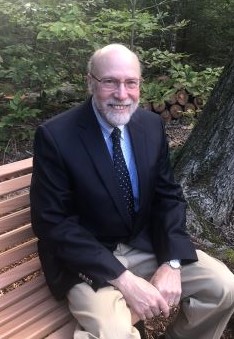A Conversation With
David W. Nierenberg, AB ’71, MD ’76

David W. Nierenberg, AB ’71, MD ’76, is the new chair of alumni giving at Harvard Medical School. A member of the Dean’s Council, which comprises individuals who give $2,000 or more annually to HMS, Nierenberg says he likes the idea of giving back to HMS in a personal way through this new volunteer role. He will help engage and steward alumni, support class agents and Reunion Committees in their fundraising efforts, and update the Alumni Council on philanthropic giving from alumni.
Tell us a bit about how you got involved as a volunteer with HMS?
We had a wonderfully friendly, quite diverse, and very active class when we showed up at HMS in Fall 1972. Besides bonding in classes and small groups, and of course, over anatomy dissections and physiology dog labs, I can remember great soccer games, tennis matches at Vanderbilt, and enjoying many meals together. Two other activities I recall fondly are participating in student government at that time (and helping to advocate for student concerns to the administration), and best of all, participating in the traditional Year 2 and Year 4 Class Shows. We had some wonderfully talented actors, dancers, writers, and musicians in the class, and helping to arrange the songs and conduct the band was a wonderful way to get to know other “hidden talents” of many classmates. Even today, some of my fondest and strongest memories of my classmates revolve around those out-of-class activities that helped our class spirit develop. Once we graduated, two of us agreed to be “Class Agents” to help solicit our classmates twice each year to make gifts to support the School. Fortunately, our class has many generous classmates, and writing our class’s bi-annual appeals each year has been a great way for both of us to stay in touch with old friends. We have also worked on pretty much all of the Reunion Committees over the years, planning which activities would be the most fun and meaningful, and working to make the Reunion class gift every five years as helpful as it could be. Our job was made so much easier by having such generous classmates year after year.
Why do you support HMS at the Dean’s Council level?
I wanted to give a special gift to HMS for my 45th Reunion. My gift also had the fringe benefit of allowing me to “pay it forward” by naming a chair in the new Joseph B. Martin Conference Center amphitheater, and that was a great way to honor my mother and father, who paid for most of my HMS tuition. But most importantly, as I was in the process of retiring, I really wanted to donate a larger gift back to HMS, and also think about ways I could help make HMS even better for the next generation of medical students.
Why do you believe supporting the School at the Dean’s Council level is important?
As we alumni get older, we often have a greater ability to give back to the School that gave us such a great start in medicine. Alumni who can afford to give $2,000 per year are indeed fortunate, so giving back at this very significant level is a wonderful way to show our gratitude to the School, and to help move HMS forward as well.
What do you see as the impact of philanthropy on HMS?
The School is ambitious in its efforts to innovate its curriculum, increase financial aid, lower student loan obligations, and improve diversity and equity, among so many other efforts. It would be impossible to pursue these ambitions without generous philanthropy from loyal alumni. If we want HMS to continue to lead in all of these important areas, then we as alumni need to show our leadership in our patterns of giving back to HMS, one by one, as we are able.
Which areas of HMS are you particularly excited to see benefit from your fundraising efforts?
First, I’d like eventually to see all HMS students graduate without any medical school debt so that they can go into any field of medicine—like primary care, for example—regardless of whether it generates enough salary to pay off debts easily. Second, there are many aspects of the new curriculum that appear to be very faculty intensive, and I want to be sure that HMS can attract the very best faculty to work closely with every medical student.
